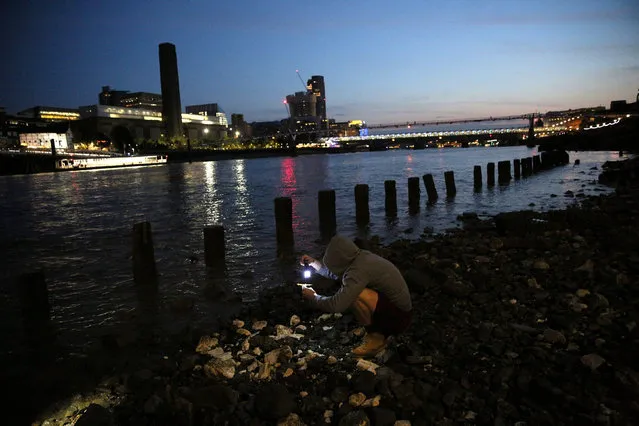
Masked revellers pose in St. Mark's Square during the Venice Carnival, February 7, 2015. The Venetian carnival started on January 31 and runs until February 17, forty days before Easter celebrations. (Photo by Stefano Rellandini/Reuters)
10 Feb 2015 12:53:00,post received
0 comments







